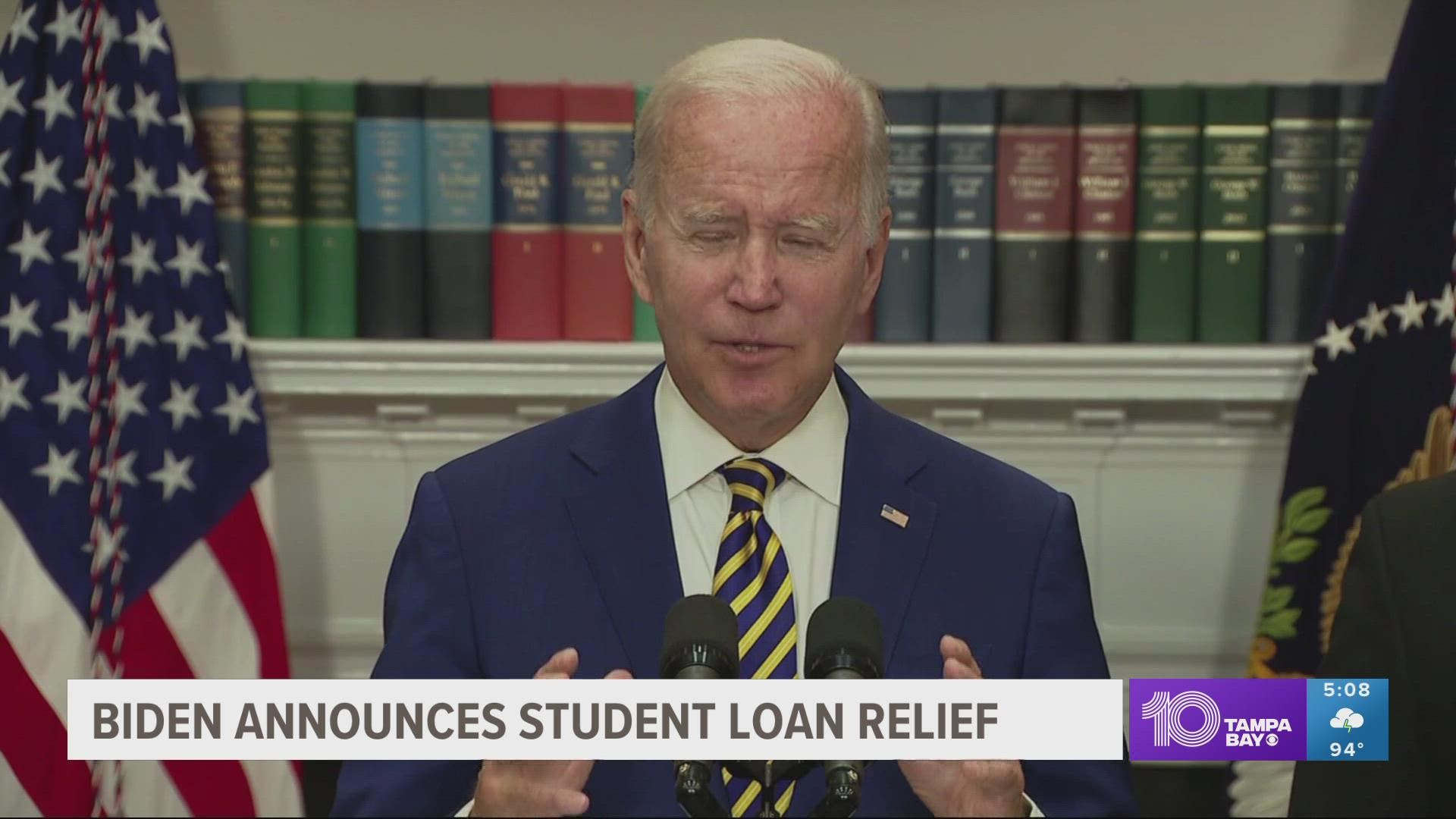ST. PETERSBURG, Fla. — Millions of Americans breathed a sigh of relief on Wednesday when President Joe Biden announced his student loan forgiveness plan.
If the plan survives looming legal challenges, it will help more than 45 million Americans who have racked up a whopping $1.6 trillion in student loan debt collectively.
Biden pledged to wipe away at least $10,000 of college debt for people making less than $125,000 annually. For Pell Grant recipients, up to $20,000 will be canceled.
But while many were celebrating the president pushing through one of his biggest campaign promises, others were quick to question if the plan really makes sense for everyone.
One of those critics was Florida Gov. Ron DeSantis.
“The announcement yesterday that they are going to require the American taxpayer to basically be responsible for some of these student loans, first of all, is very unfair to people that took out loans, worked hard and paid off their loans," he said at a press conference on Thursday.
“It’s very unfair to have a truck driver have to pay back a loan for somebody that got, like, a Ph.D. in gender studies."
So, how much will it really cost taxpayers?
We don't know for sure, but some policy experts estimate an average of $2,000 per taxpayer over the course of 10 years.
Andrew Lautz, director of federal policy at the National Taxpayers Union, calculated that number based on the Penn Wharton Budget Model, which estimated the total cost of federal student loan forgiveness to be more than $300 billion.
But because tax burdens aren't evenly distributed across households, Lautz breaks it down by income:
- The average cost of student debt cancellation would be $158.27 per taxpayer making between $1 and $50,000
- $866.87 for people making between $50,000 and $75,000
- $1,477.78 for people making between $75,000 and $100,000
- $3,158.35 for people making between $100,000 and $200,000
- $9,947.92 for people making between $200,000 and $500,000
Keep in mind that this is all hypothetical — it's based on the assumption that taxes will be raised to pay for the debt forgiveness package. Policymakers will need to make up for debt with either government spending cuts, tax increases, more borrowing or some combination of those, but it hasn't been decided yet.
RELATED: No, the average taxpayer will not have to pay $2,100 to cover the cost of student loan forgiveness
The $300 billion cost, according to some experts, could also increase based on the Pell Grant and income-based repayment features of the plan.
Some also argue that the student loan debt cancellation doesn't address the root of the problem — why students are racking up so much debt in the first place.
“Higher education is one of the most difficult, thorny problems that you really need to get into how universities and graduate schools are financed and what kinds of changes would make it more affordable,” Maya MacGuineas, president of the Committee for a Responsible Federal Budget, told CNBC. “This accomplishes none of that.”
"A one-time forgiveness does nothing to address the underlying causes of education costs and student borrowing for current and future students," Lautz said.

